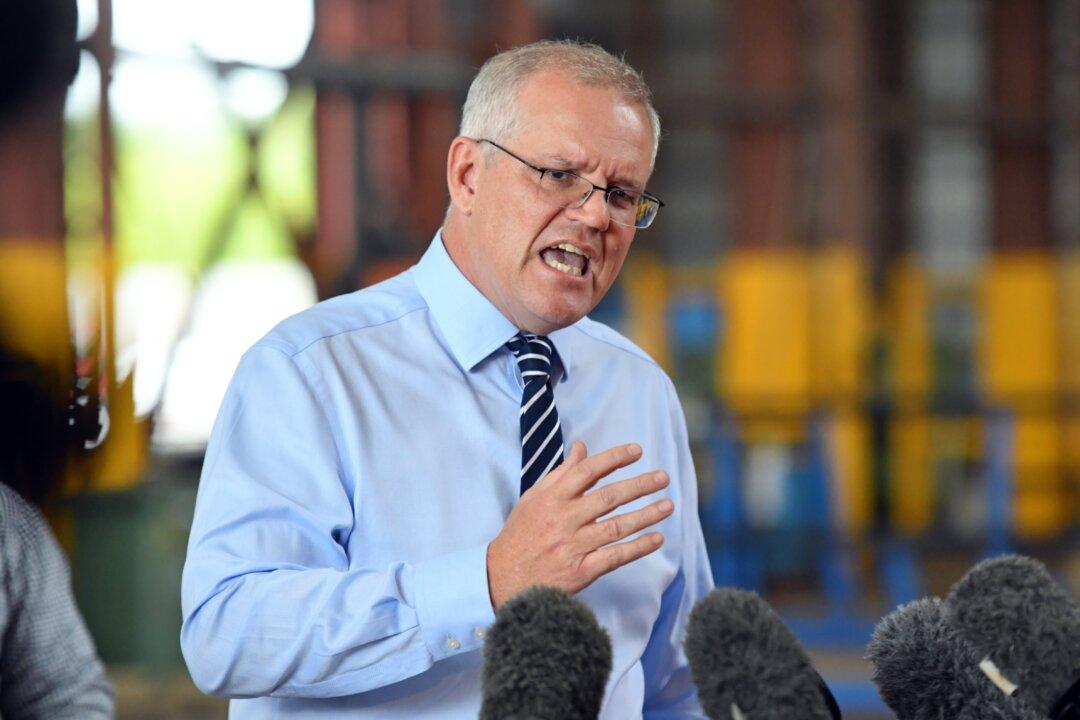A conflict with Beijing will not be limited to tanks and weapons, and instead will encompass a wide array of domains including cyber, according to Australian Prime Minister Scott Morrison.
The prime minister was responding to questions over Australia’s readiness to confront a more aggressive Chinese Communist Party (CCP) in the region, saying the AUKUS agreement with the United States and United Kingdom would help bridge capability gaps across different areas of modern warfare.





